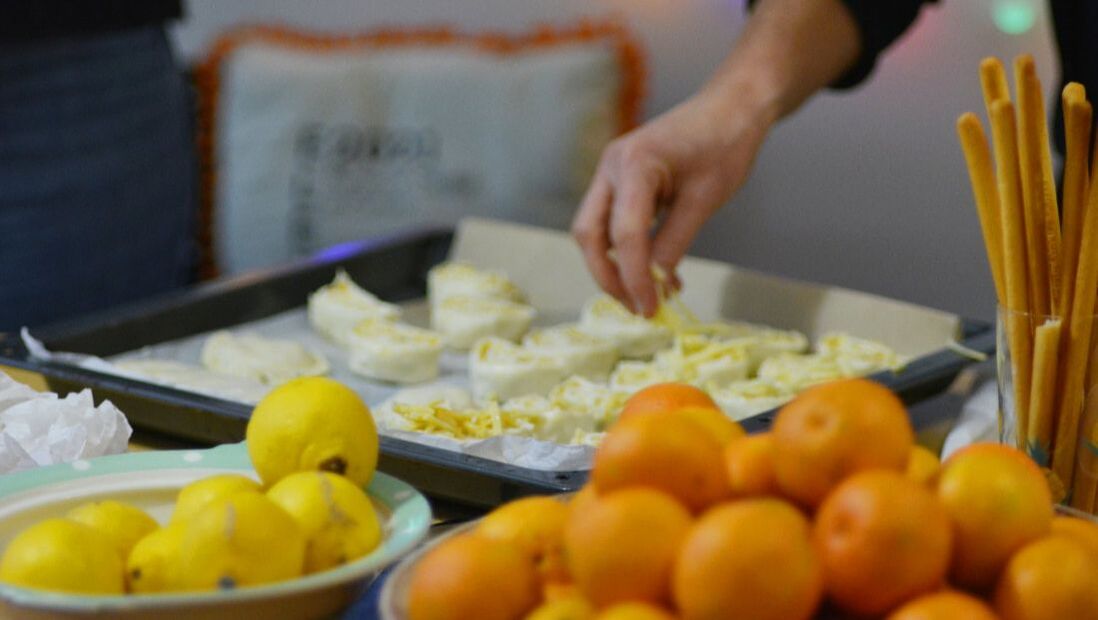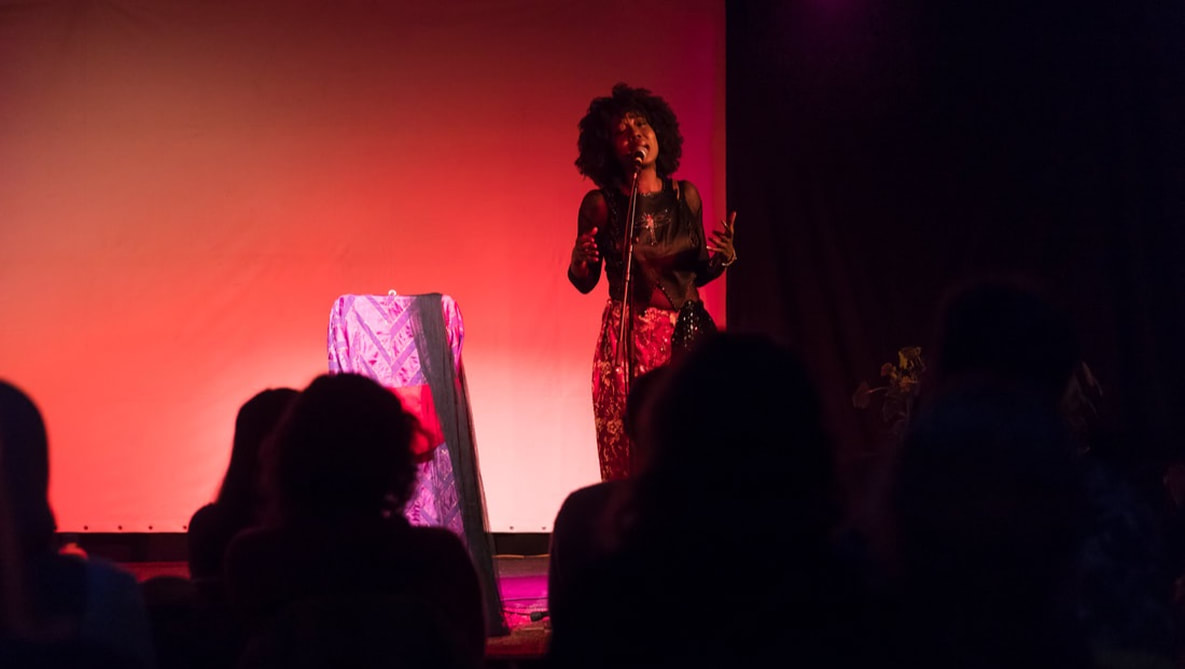Images: Future Pasts, Henna Asikainen; photo credits: Simone J Rudolphi and Celia Medina (Hadrian’s Wall) and Saya Naruse (D6 Studio)
international migrants day 2022
D6 joins with people around the world to mark International Migrants Day. In recent years, conflict, insecurity, and the effects of climate change and war have heavily contributed to forced movement whether within countries or across borders. Today, there are over 258 million migrants around the world living outside their country of birth.
On this International Migrants Day, D6 reaffirms its commitment to Article 27 of the Universal Declaration on Human Rights to ensure that everyone has the right to freely participate in the cultural life of the community.
To mark International Migrants Day we are sharing photos and the story behind our latest commission with artist Henna Asikainen, Future Pasts.
Landscape is a gift
Future Pasts invites families and people with lived experience of displacement and migration, often new to the North East, to come together to discover and explore local landscapes. Community participants have joined in walks along Hadrain’s Wall: ‘We have walked together as a way of getting to know each other, this place, the wall and the landscape. Understanding the place in which we live and the histories that formed it allows us to better identify with, and participate in our new communities,’ says Henna.
Hadrian’s Wall as the site for the walks provides a rich location for reflection on what it means to belong and the connections between communities and heritage throughout time. The wall acts as a powerful reminder of the long history of migration that has formed Britain - this year marks 1900 years since it was built. ‘It’s a brilliant way to discover the country. We have the same history, the Romans were in my country [Syria] too. We have the same design to this day. Once we were one country,’ says one participant.
Henna and the participants spent time exploring their conversations and experiences through different print and painting techniques at the D6 studio. This resulted in a series of colourful and powerful banners. The performative protest along Hadrian’s Wall was a natural and logical progression to the work, giving a platform for these personal statements and conveying the beauty of the collective experience, while being politically charged.
Hostile and fragile environments
A series of banners quote Caledonian chieftain Calgacus from a rousing speech denouncing the exploitation of Britain by Rome in 83 AD: ‘They plunder, they butcher, they ravish, and call it by the lying name of ‘empire’. They make a desert and call it ‘peace.’
Henna says: ‘The quote reminds us that colonialism is not something that can be dismissed as a historic mindset that has been transcended - it is very much a political, institutional and operational reality. It is still embedded in the distribution of power and resources between the global north and south and class relations in our so-called western democracies.’
‘It also resonates with the current ecological crisis going on. These issues are so intertwined that it is really important to look at them together, especially migration through the environmental crisis, which is so rarely acknowledged,’ she adds.
Hadrian’s Wall is a complex metaphor that resonates with migration and belonging, nationalism and bordering practices. These systemic barriers prevail in the experience of people's journeys to and day-to-day lives in the UK. It is also a site of integration, connection and interculturalism.
The complexity of these structures and exploration of heritage continue to play out in the context of the hostile environment policy, which the UK government put in place over ten years ago and impacts on all aspects of life for people seeking safety in the UK.
Against this grim reality, there are moments of possibility. Henna and people taking part have discovered and created things together - small but meaningful acts of connection that may help shape the future. As the title suggests, Future Pasts is about making positive memories to be remembered in the future.
Ahead of International Migrants Day we at D6 show our support for those seeking sanctuary and celebrate the many ways people see and understand the world in the hope of creating safe spaces for everyone to thrive and belong.
Please visit our social media channels to share the content to show your support for International Migrants Day.
#ItTakesACommunity
#MigrantsDay
The project is produced with D6: Culture in Transit with support from National Lottery Heritage Fund; Arts Council England National Lottery Project Grants; National Trust; Newcastle University; CPRE Northumberland; Northumberland National Park Authority, and North East Solidarity and Teaching.
On this International Migrants Day, D6 reaffirms its commitment to Article 27 of the Universal Declaration on Human Rights to ensure that everyone has the right to freely participate in the cultural life of the community.
To mark International Migrants Day we are sharing photos and the story behind our latest commission with artist Henna Asikainen, Future Pasts.
Landscape is a gift
Future Pasts invites families and people with lived experience of displacement and migration, often new to the North East, to come together to discover and explore local landscapes. Community participants have joined in walks along Hadrain’s Wall: ‘We have walked together as a way of getting to know each other, this place, the wall and the landscape. Understanding the place in which we live and the histories that formed it allows us to better identify with, and participate in our new communities,’ says Henna.
Hadrian’s Wall as the site for the walks provides a rich location for reflection on what it means to belong and the connections between communities and heritage throughout time. The wall acts as a powerful reminder of the long history of migration that has formed Britain - this year marks 1900 years since it was built. ‘It’s a brilliant way to discover the country. We have the same history, the Romans were in my country [Syria] too. We have the same design to this day. Once we were one country,’ says one participant.
Henna and the participants spent time exploring their conversations and experiences through different print and painting techniques at the D6 studio. This resulted in a series of colourful and powerful banners. The performative protest along Hadrian’s Wall was a natural and logical progression to the work, giving a platform for these personal statements and conveying the beauty of the collective experience, while being politically charged.
Hostile and fragile environments
A series of banners quote Caledonian chieftain Calgacus from a rousing speech denouncing the exploitation of Britain by Rome in 83 AD: ‘They plunder, they butcher, they ravish, and call it by the lying name of ‘empire’. They make a desert and call it ‘peace.’
Henna says: ‘The quote reminds us that colonialism is not something that can be dismissed as a historic mindset that has been transcended - it is very much a political, institutional and operational reality. It is still embedded in the distribution of power and resources between the global north and south and class relations in our so-called western democracies.’
‘It also resonates with the current ecological crisis going on. These issues are so intertwined that it is really important to look at them together, especially migration through the environmental crisis, which is so rarely acknowledged,’ she adds.
Hadrian’s Wall is a complex metaphor that resonates with migration and belonging, nationalism and bordering practices. These systemic barriers prevail in the experience of people's journeys to and day-to-day lives in the UK. It is also a site of integration, connection and interculturalism.
The complexity of these structures and exploration of heritage continue to play out in the context of the hostile environment policy, which the UK government put in place over ten years ago and impacts on all aspects of life for people seeking safety in the UK.
Against this grim reality, there are moments of possibility. Henna and people taking part have discovered and created things together - small but meaningful acts of connection that may help shape the future. As the title suggests, Future Pasts is about making positive memories to be remembered in the future.
Ahead of International Migrants Day we at D6 show our support for those seeking sanctuary and celebrate the many ways people see and understand the world in the hope of creating safe spaces for everyone to thrive and belong.
Please visit our social media channels to share the content to show your support for International Migrants Day.
#ItTakesACommunity
#MigrantsDay
The project is produced with D6: Culture in Transit with support from National Lottery Heritage Fund; Arts Council England National Lottery Project Grants; National Trust; Newcastle University; CPRE Northumberland; Northumberland National Park Authority, and North East Solidarity and Teaching.


